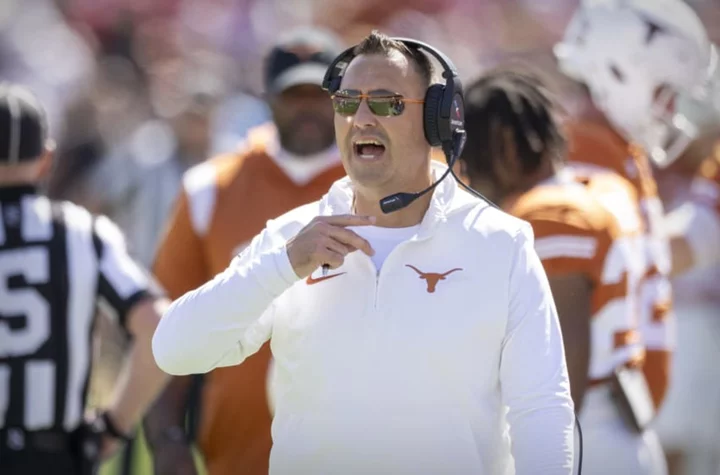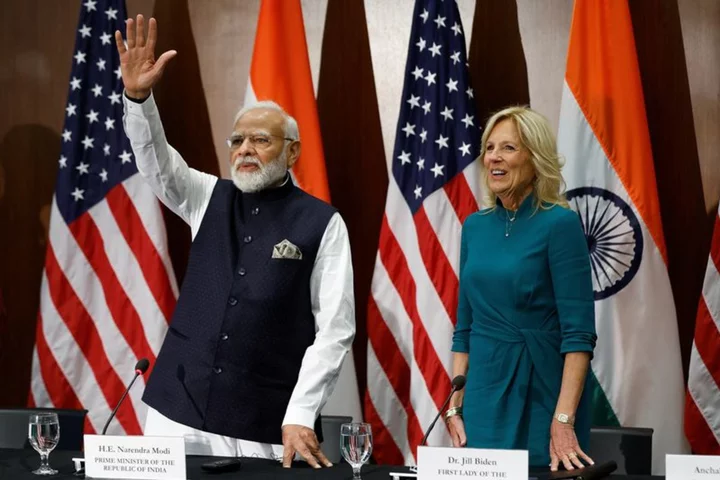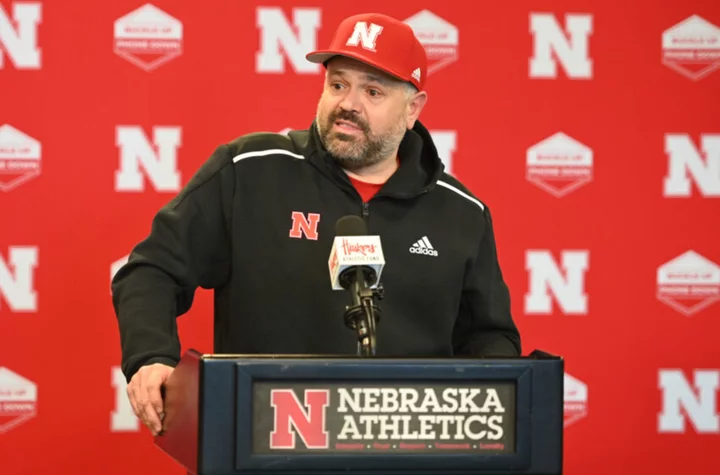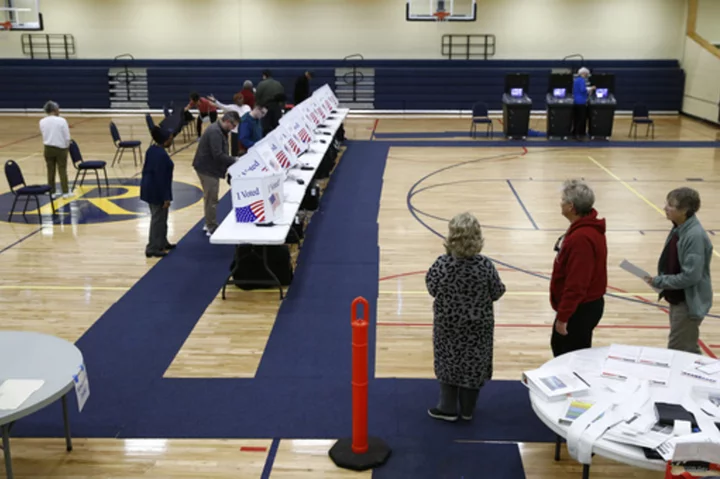It's a tradition unlike any other: The annual "Texas isn't actually back" game.
The Texas Longhorns had media and fans using the dreaded B word throughout the week leading up to the Red River Showdown against Oklahoma. There was good reason for it too. Texas' win over Alabama in Tuscaloosa was still the most impressive win of the season. Steve Sarkisian's squad looked legitimately great.
Then they lost 34-30 by giving up a touchdown drive in the final minute of play to watch that house of cards crumble right on cue.
That's why the result of Saturday's rivalry game is so frustrating for Texas. And why the urge to point fingers is so strong.
3. Jaylan Ford
The entire Texas defense could be blamed for the loss, to be honest. The Longhorns had looked so stout defensively all year. They held Alabama to 24 points and hadn't given up more than 14 to anyone else they faced.
So what happened? Defensive coordinator Pete Kwiatkowski doesn't come out smelling like roses after his prevent defense prevented a victory. Other individuals missed tackles and blew assignments. But the most head-scratching performance of the day belonged to Jaylan Ford.
Ford had been having the best season of his career. He set the tone in the middle of the defense. Then on Saturday, he laid an egg. When he wasn't absent from the action by being washed out by a blocker, he was missing a tackle or getting embarrassed by Dillon Gabriel on the scramble.
Ford was far from the only defender responsible for the loss. The Longhorns gave up 34 points as a unit. However, as a defensive captain, it was his job to inspire his unit to get the key stop when they needed it. He came up short in that regard.
2. Quinn Ewers
It's very simple: In football, you won't win very many games when you lose the turnover battle. And Texas lost the turnover battle badly against Oklahoma.
Quarterback Quinn Ewers accounted for all three giveaways — two interceptions and a fumble. He had been doing an outstanding job at protecting the football going into Saturday. The change in fortune couldn't have come at a worse time.
Each turnover was a killer, but the first was the worst. Ewers threw the ball straight at a defender. It was a telegraphed pass. It should never have been thrown. The INT set up Oklahoma at the Texas 22-yard line and Dillon Gabriel promptly made the opposing QB pay for it with a nine-yard scoring run.
Ewers' second interception was more of a bad break on a deflected pass but he didn't exactly make it easy on his receiver there and invited disaster in. If he had put that ball on the money, the likelihood of a turnover drops. A touchdown, or at least a field goal, likely follows.
The fumble was simply bad ball security. As a quarterback, Ewers has to be more careful. His carelessness ultimately cost Texas the game.
Ewers has so much potential. His arm talent is worth getting excited about. But this is the kind of performance that maintains the skepticism about him leading the Longhorns to the promised land.
1. Steve Sarkisian
Steve Sarkisian's greatest strength is supposed to be his offensive genius. He's supposed to outwit the opposing defense. He's supposed to have that edge.
So Sark has to get the blame when the Longhorns offense had opportunities to take hold of the game and didn't.
The failed goal-line trip in the fourth quarter is a prime example of wasted opportunity. Texas tried two handoffs up the middle and a pitch that went nowhere. On fourth down, Sark dialed up a screen outside that very nearly worked, but almost only counts in horseshoes and hand grenades.
The Longhorns couldn't get one yard in four tries. That's on Sark.
Later in the fourth, the head coach added more frustration to the performance, handing the ball off to Brooks on third-and-10. He played for the field goal this time and got burned when Oklahoma rolled down the field to score a game-winning touchdown.
But above all else, Sark owns the performance of his team in a big rivalry game. The Longhorns were sloppy. They were mistake-prone. They handed Oklahoma the game. That's on Sark.









